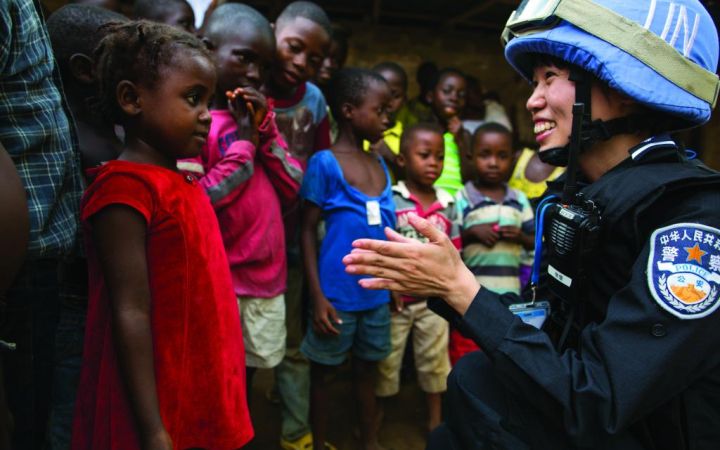UNITAR Launches the first edition of online Diploma in Peace Management
In partnership with The World Federation of United Nations Associations (WFUNA) and the Kyung Hee University (KHU)
Deadline for applications: 15 August 2018
The Diploma links theoretical knowledge and practical competences through online lectures, sharing of experiences and discussions with key practitioners, applied learning and critical reflections. The aim of the programme is to equip graduates with solid knowledge and the ability to handle the most complex challenges that professionals face in the field.
Built on the expertise developed by the United Nations Institute for Training and Research, Kyung Hee University and the World Federation of United Nations Associations, the Diploma in Peace Management explores a variety of technical and soft skills, needed by personnel working in conflict and post-conflict environments to effectively achieve their mandates while dealing with daily challenges.
Main topics covered by the Diploma in Peace Management include:
- Leadership, team and self-management;
- Nonviolent communication;
- Stress management;
- Negotiation and mediation;
- Partnership brokering.
The programme favours active learning approaches centred on electronic delivery of content, active student engagement, and strong interactive pedagogical tools. The programme approach and teaching and learning strategies are designed for you to learn from the workplace, incorporating practical cases as much as possible. This shall allow you to develop new knowledge based on the specifics of conflict and post-conflict environments, improve related practices and acquire attitudes and personal competences that will serve you well in the field.
The distinctive features of the Diploma in Peace Management are:
- Online delivery. Recent developments in e-learning provide the practical platform for this programme. The main assets of a totally virtual learning environment are the flexibility (mostly in terms of location, time, and space) and the diversity of methods and approaches. E-learning also allows for personalisation of learning, where students can immediately integrate the material in their day-to-day lives and work environments.
- Learning from the workplace/Lifelong learning. The programme uses the workplace as the main learning environment and allows learners from all over the world to virtually learn from each other’s experiences and engage in discussion, conceptualisation, and practice-based exercises. The programme includes hands-on exercises with live and field-based problems, working with communities, practitioners and agencies. The emphasis is on understanding achieved by strong analytical tools but also on reflection on one’s own role as practitioner. Building on personal experiences and working practices of field workers, the programme aims at creating new knowledge and best practices driven from the discussions and real-life cases.
- Student-centred approach. The learner and learning experience are at the centre of the approach. For every topic presented, there are opportunities for students to engage in discussion fora, complete applied exercises, benefit from the knowledge of program facilitators, and learn from each other.
- Innovative multicultural pedagogy. We believe that multiculturalism can be a medium of instruction. Students benefit greatly from the diversities of perceptions, intellectual traditions, or specific knowledge of the different partners, which in many ways replicates the diversity one encounters in the field. A key element of this culture sensitive/multicultural education is the use of examples and contents from other cultures in order to teach key concepts, principles and theories. This diversity can be emphasized through innovative teaching methods such as discussion fora and online exercises. Multiculturalism can also be a means for knowledge production.
- Multi-disciplinary study. The Diploma in Peace Management is a multi-disciplinary programme based on studies and theories from social sciences, peace and conflict studies, humanities, management, political sciences, and law. It also merges practice-based knowledge produced by field practitioners and research outputs from practice-oriented scholars.
- Web-based learning community. Due to the specificity of field activities based mostly on collaborative work and in order to put the learners in a situation as close as possible to field practice, a large portion of the learning activities and assessments aim to create a virtual space of dialogue. We believe in the importance of peer-to-peer learning through sharing experiences or everyday practices. The Diploma avails itself of an international faculty, composed of field experts, academics and researchers from the United Nations, various Universities from all over the world and other relevant international, regional and sub-regional organizations. This faculty made of reflective practitioners and practice-based scholars brings intellectual diversity and different perspectives to the virtual learning environment, creating a rich and challenging programme.
Deadline for applications: 15 August 2018
Apply today: http://unpeace.khu.ac.kr
Related link
onlinelearning.unitar.org/diploma-in-peace-management/
Photo credit: UN Photo/Albert González Farran


